Let's plant native forests all around us!
Plants that can be replanted in this way grow faster, are denser and contain greater biodiversity than conventional landscaping, in addition to providing multiple ecological benefits and social values, as they are participatory projects.
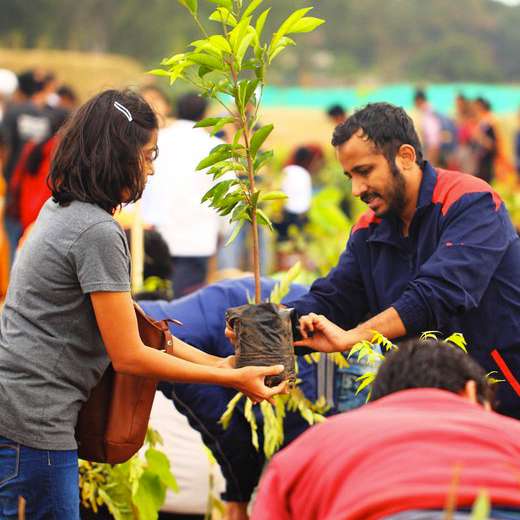
Our association firmly believes that these participative planting actions are within the reach of all citizens, and defends the values of sharing, transparency and solidarity: see the values that drive Boomforest.
Tree planting is a collective activity for people at all levels of society;
it represents an investment in the future, an expression of hope.
Akira Miyawaki et Elgene O. Box
The Healing Power of Forests
Why the Miyawaki method?
At the beginning, we sought to answer a simple question: is it possible for citizens to increase the place of plants in their immediate environment, which is often very mineral…
1. Efficiently ?
2. Without requiring heavy investment?
The Miyawaki method, by replanting from the outset plants forming the different “stages” (plant strata) of a forest, in a dense manner, with local plants constituting native forests, proposes to rapidly reform forest-type ecosystems.
Dense vegetation
The high density (3 trees per m2 in France) plays a beneficial role in helping young plants in the early years, making them more resistant to external stresses (wind, drought, competition), while allowing the formation of closed vegetation from the earliest stages of growth.
The return of biodiversity
The wide diversity of plant species and high planting density ensure a rapid return to biodiversity from the very first year.
Earthworms, insects, pollinators, birds, small mammals… As the plantation is too dense for human beings, other living creatures quickly return to its heart!
Stimulated growth
Dense planting encourages virtuous competition between young trees, which grow fast to stay in the race for light.
The youthfulness of the plants used also makes them adaptable and more resilient to the climatic changes that affect all plants.
An autonomous plant community
Thanks to the selection of native species, adapted to the local environment, and to their diversity, and to the density, the plantation is self-sufficient after 3 years and does not normally require watering (the climate crisis encourages us to monitor each plantation more closely at this level).
Before that, you’ll need to do a little weeding – that’s all!
Boomforest, an associative experiment since 2018
Aware of the need for vegetation in Paris, the members of what was to become an association decided in 2016 to apply Japanese botanist Akira Miyawaki’s reforestation method to experiment with creating a mini-forest in the city! Thanks to the 2016 edition of the Paris Participatory Budget, we obtained the permit to plant the first Miyawaki forest in Paris on an embankment of the Boulevard Péripherique, in March 2018, the association’s first official planting.
Since then, the association has continued experimenting with public authorities in the Paris region, in a variety of contexts, to try and better understand how to apply this protocol in our immediate environments. In 2020, another group was formed in the Lyon region, and inaugurated its first plantation in March 2021, soon followed by others. In 2021, the Boomforest association and the Les Pionniers association, a group that had initiated several projects in the Val-de-Marne region, joined forces to form a single structure and pool their energies.Today, the association has more than 20 plantations to its credit. You can access details of each of them in the dedicated section.
In a nutshell, it looks like this:
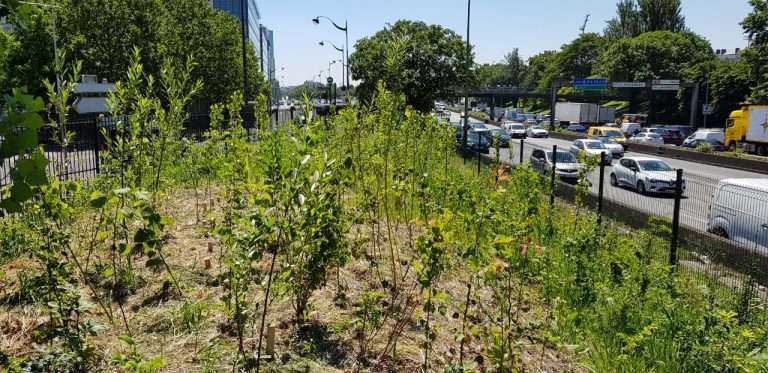
Produced as part of the Paris Participatory Budget
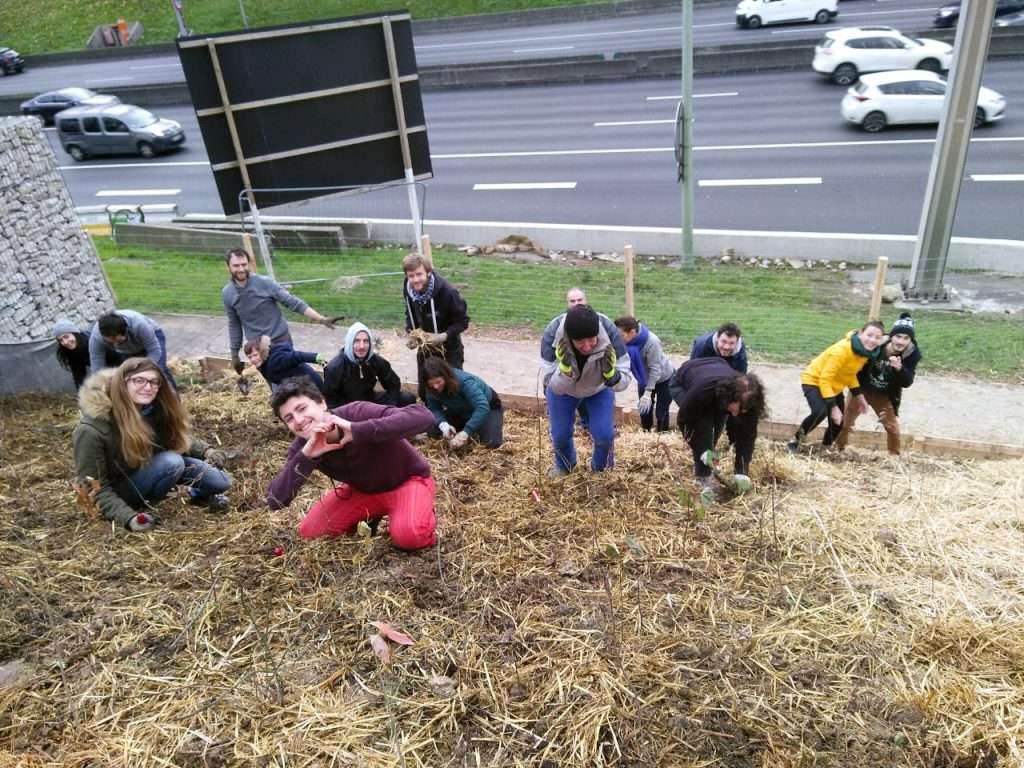
In the rain, close to the noise, on a slope... but the momentum is there!
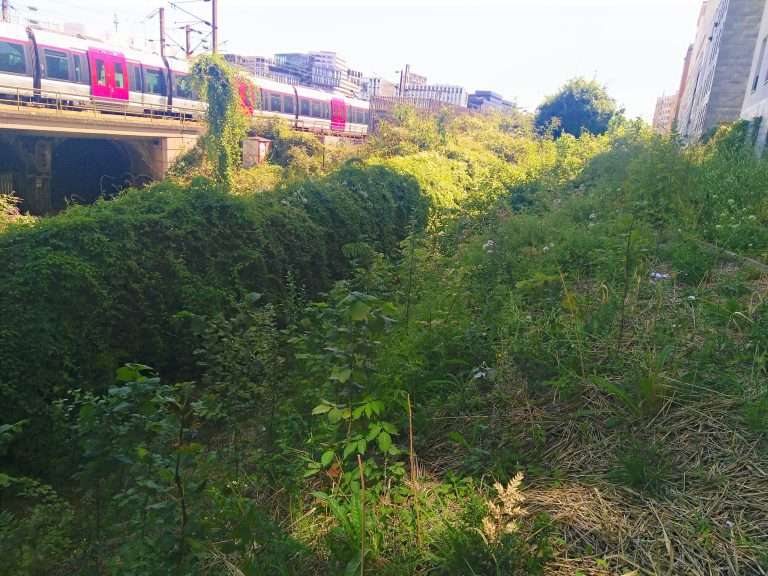
Porte d'Asnières plantation, Paris
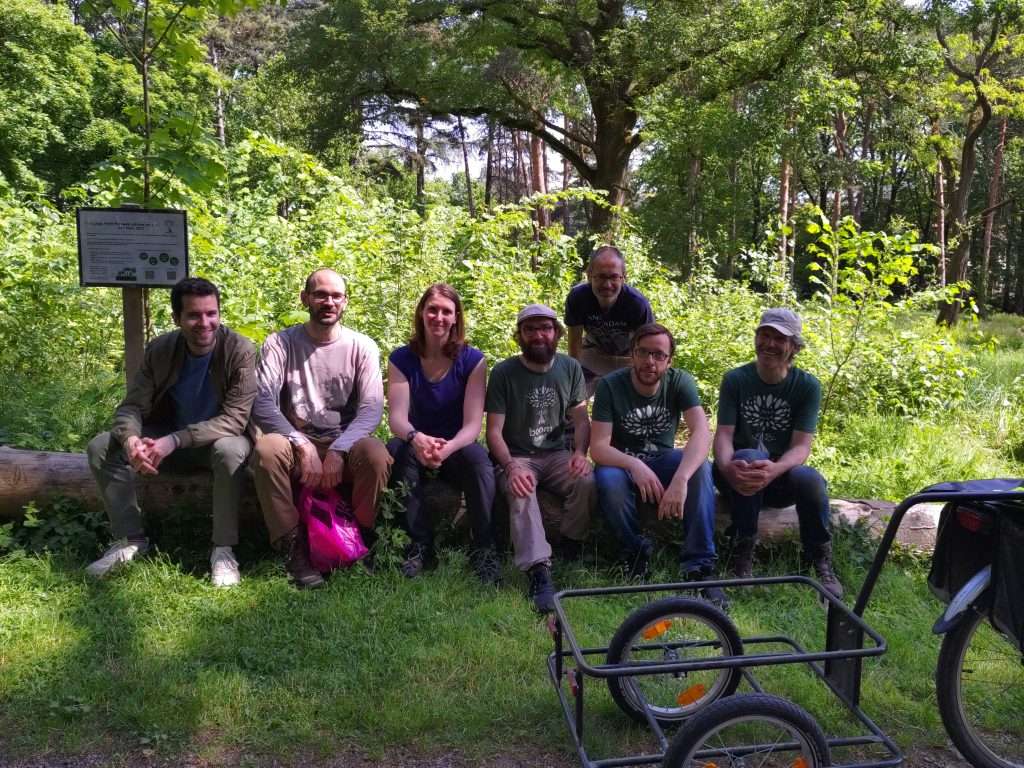
Part of the team in front of the plantation in Lyon's Parc de Parilly
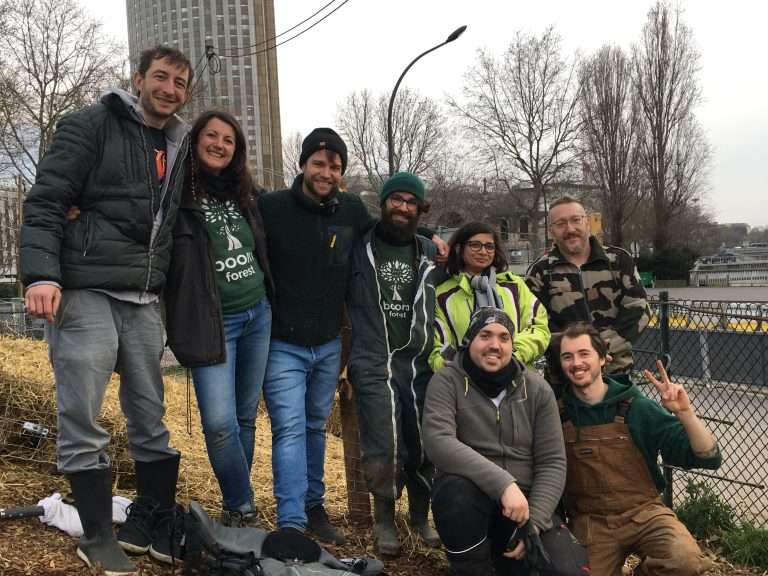
The association's team is growing stronger and stronger, meeting new people who are always radiant and full of energy!
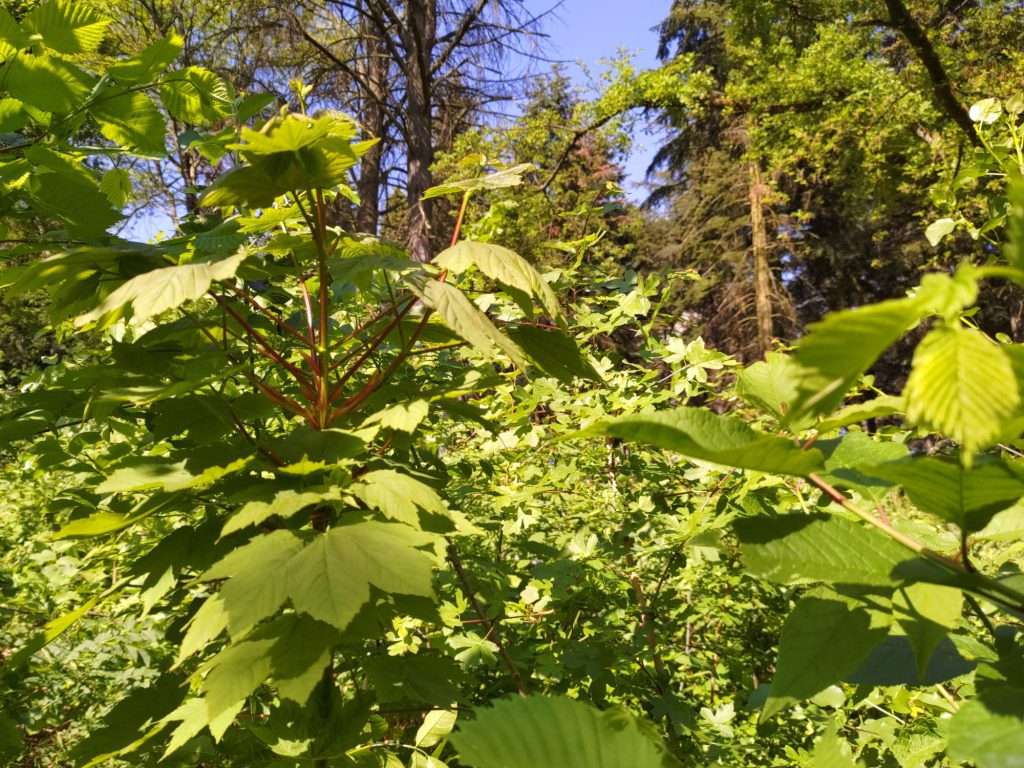
We are continuing our projects and developing new workshops, redesigning the website and creating new media.
A federated network of players, each experimenting in their own way
Boomforest encourages cooperation with initiatives by individuals or associations, to spread projects within a global movement of citizen participation in the restoration of biodiversity (plant and animal).
We are fortunate to have been in contact with many groups of planters since our inception, and to have maintained close ties with some of them, sharing our experiences, observations and methods. To consult the list of players with whom we have developed a friendly bond, please visit the Ecosystem page!
